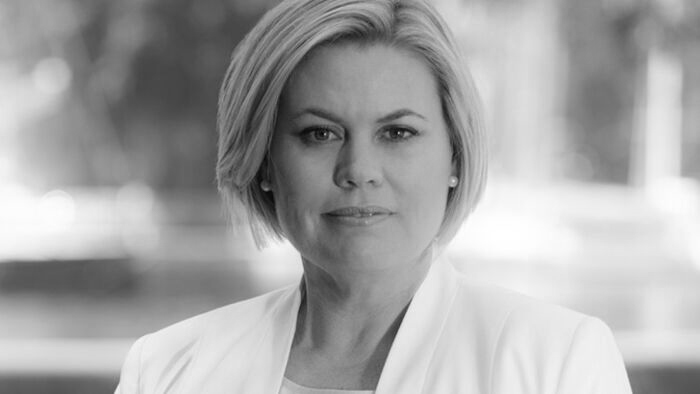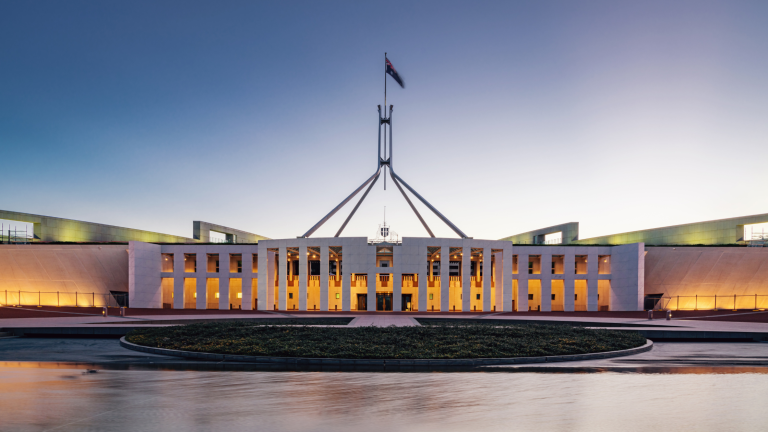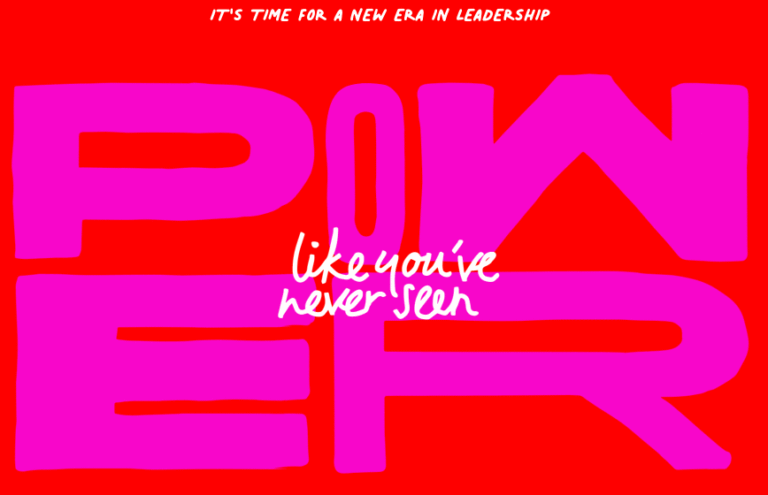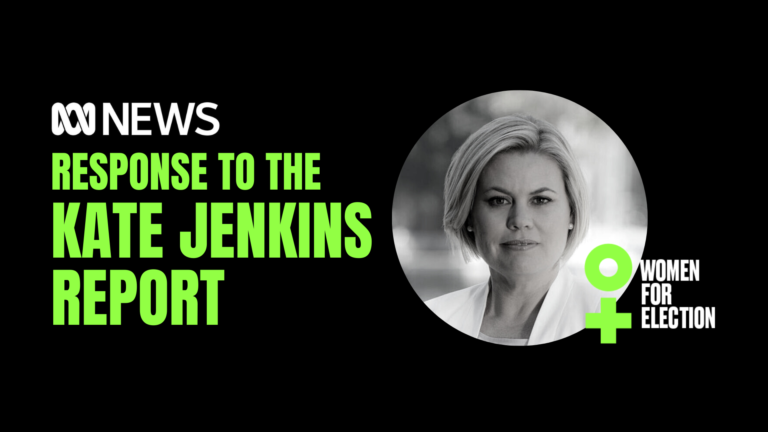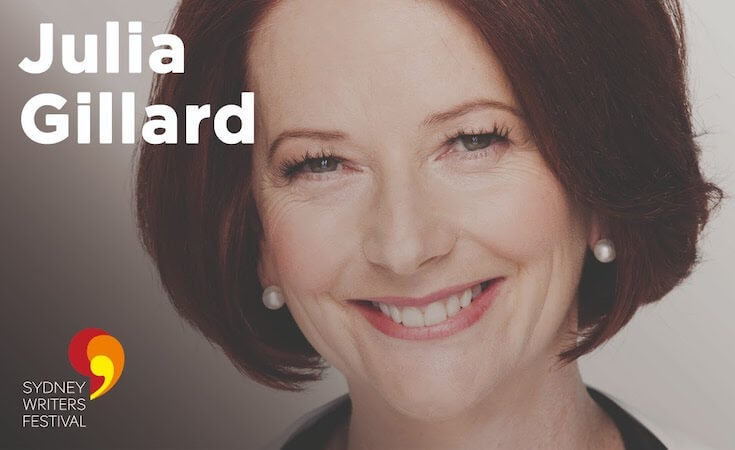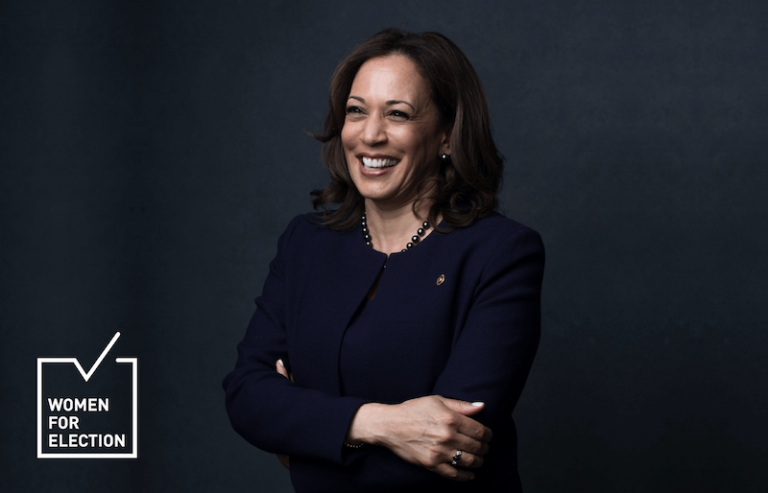Why running for office was one of the most positive experiences of Licia Heath’s life
Originally published on Money Magazine on Friday 17 September 2021
Licia Heath is passionate about encouraging more women to participate in politics. As CEO of WOMEN FOR ELECTION, a non-partisan group committed to increasing the number of women in public office, she works inspire and equip them with the skills to run.
Heath has her own experience running for office and believes greater transparency in the process leads to more women stepping into politics.
The recently aired SBS documentary series Strong Female Lead has shown the experiences of women in politics, and while it’s disheartening for some, Heath says it’s important that these conversations are aired.
You’ve had your own experience running for election – tell us more about it, and would you do it again?
I’d love to run again one day. I ran in Wentworth, the most high profile by-election the country has seen [when Malcolm Turnbull stepped down and the Liberals lost the seat to independent Kerryn Phelps], and it was the exact opposite experience of what I’d been told.
It was one of the most positive experiences of my life. People had said people would go through my garbage and find out where my kids go to school.
None of that happened. I didn’t win but I did influence the outcome; the winner adopted my policy platforms. I also had women approach me and say ‘keep going’ and ‘you’re just like me, can I buy you a coffee, I’d love to do what you’re doing and don’t know how’.
How have things progressed in your time at WOMEN FOR ELECTION?
We’ve trained 1700 women in the last 12 months across Australia, from Kangaroo Island to the Yorke Peninsula to the Kimberleys, Perth, and Darwin.
Since last year sent us online, we were able to scale our offering.
Why has the number of women seeking election risen?
We say there are normally three reasons why anyone runs – they’re pissed off, passionate, or political.
Generally the reasons for seeking election are that somebody has got to the point where they’ve realised it’s not going to get better unless they get involved, or they don’t feel represented and neither do their friends or community so they decide they’ll give it a crack.
We’ve taken off with a bullet this year – we’re trying to inspire more women to run and then equip them to run.
What do women want from you?
Research shows us that women want more information before they will step forward. When you think about how things worked 25 years ago or longer, you’d go to your local branch meeting of a party.
We all know that isn’t happening now, party membership is dwindling so in the absence of that, how do you find out information?
We are filling that void. It doesn’t mean they don’t attend the party meeting, they just don’t want it to be their first port of call.
We provide bread and butter training – what you need to know when you run for office – time commitment, pre-selection, social media, door knock, producing how-to-vote pamphlets, and negotiating preferences. Whether it’s local, state or federal level, it’s all the same.
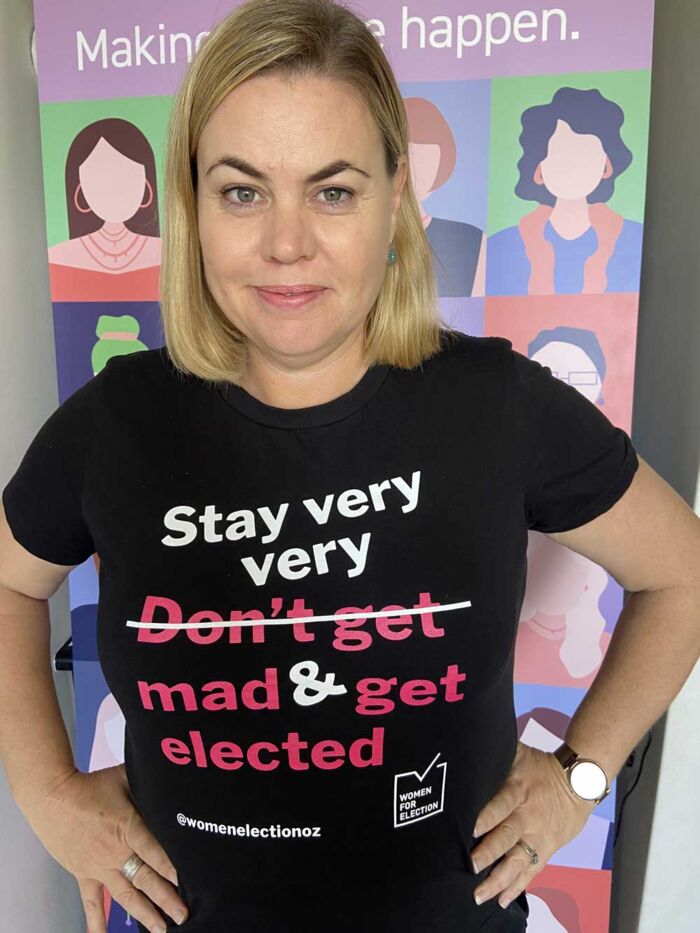
How many members do you have now who are actively seeking office?
We’re currently focused on the NSW local elections in December and we’re actively training 153 women.
More broadly it’s the 1700 women who have gone through training in the last 12 months – some for state office in SA, some federally for the Senate in WA. It’s a disparate arena and it’s exciting to watch their journeys. On average it takes three times to get elected.
What was your first job?
My first job was as a volunteer reading out a newspaper onto a cassette for the blind and then dropping it off to the local library. My first paid job was as a pizza waitress at La Porchetta in Melbourne.
My first career job was with Credit Suisse as a business development associate. I’d done science and engineering at university but that’s when my financial career started. I then had 20 years in financial services.
What’s the best money advice you’ve ever received?
Get in early – and watch the fees.
What’s the best investment decision you’ve made?
Taking a risk during the GFC when I had a wonderful career at Deutsche Bank. My colleagues, CEO and I made the decision to go out on our own and form our own asset distribution and mangement company – Ironbark in May 2009 – which was really still in the trough of the GFC.
What’s the worst investment decision you’ve made?
Not investing in myself sooner. It’s not listening to the little voice that says you can do this, go outside of yourself – you can do this.
What is your favourite thing to splurge on?
Certainly holidays, travel, events. I wouldn’t splurge on things. I don’t have a lot of things and I don’t like them. I like experiences and if I’m holidaying somewhere special I like to have the special activities – like a helicopter ride – to feel I’m really doing it.
If you had $10,000 where would you invest it?
In super – no question! I’d love to see that question answered according to age.
What would you do if you only had $50 left in the bank?
I would definitely leave it there. I’d go and beg, borrow and steal with the promise of paying back others but I wouldn’t touch the $50.
Do you intend to leave an inheritance?
I would like to think that we will but if not I hope that we leave one handy asset in terms of a house. It’s not something I’ve thought about much.
Would you like to see any changes in the way people look at money post-COVID?
I’d like to think that some in the community have had a reckoning of what is truly valuable – health, family, relationships – and that some of the unsustainable consumerism dissipates.
Finish this sentence: money makes…
… sense as a tool but time is more valuable. That’s what shifted my career, knowing I wasn’t going to be here forever and was I prepared to live with less money as a consequence.

